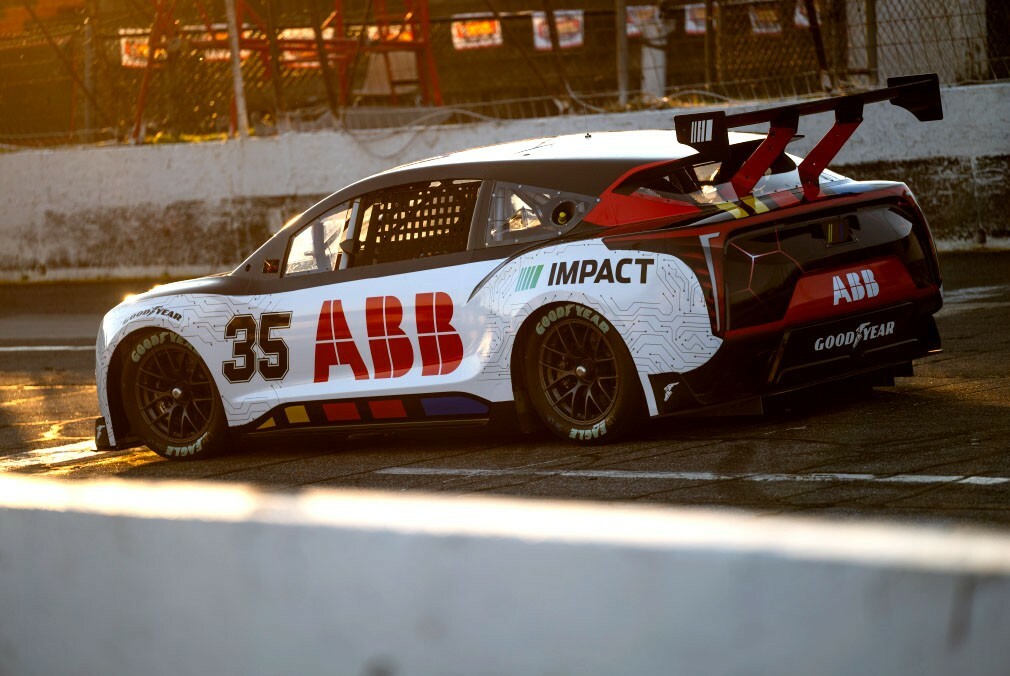- NASCAR has unveiled an electric crossover prototype that was made in collaboration with ABB as well as Chevrolet, Ford, and Toyota.
- The model features a tri-motor powertrain producing up to 1,341 hp.
- Despite unveiling a new EV, NASCAR said they’re “committed to the historic role of the combustion engine in racing.”
NASCAR and ABB have unveiled an electric prototype that hints at the future of motorsport. The duo also announced an “electrification innovation partnership” that will aid in NASCAR’s mission to “contribute to a healthier planet.”
Starting with the prototype, it was developed in collaboration with Chevrolet, Ford, and Toyota. The resulting model has a 78 kWh battery pack that feeds a tri-motor powertrain producing up to 1,341 hp (1,000 kW / 1,360 PS). Two of the motors reside out back and all three are STARD UHP 6-Phase units, which recently powered the Ford F-150 Lightning SuperTruck to victory at Pikes Peak.
More: New Toyota Camry Unveiled For NASCAR Cup Series, Resembles Updated Production Car
While the electric powertrain is new, the prototype rides on a modified Next Gen chassis. The steering, suspension, brakes, and wheels are also said to be derived from the NASCAR Cup Series car.
That being said, the model is notable for featuring a “generic” crossover body that is made from a sustainable flax-based composite. It sports a fully enclosed grille, a massive rear wing, and a sizable diffuser. They’re joined by a regenerative braking system and special Goodyear tires.
While the prototype hints at an electric future, NASCAR said they’re “committed to the historic role of the combustion engine in racing.” However, they’re also “committed to decarbonizing its operations and reducing its own carbon footprint to zero across its core operations by 2035 through electrification and innovative solutions.”
As part of this effort, they’ll be working with ABB to hit sustainability targets focused on electrification and electric vehicle charging. This will see NASCAR offer more on-site electric vehicle chargers as well as use 100% renewable electricity at their racetracks and facilities by 2028.








